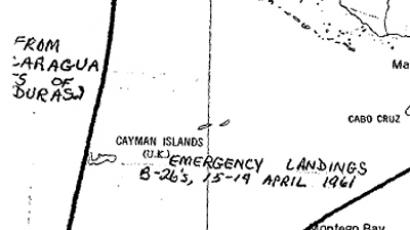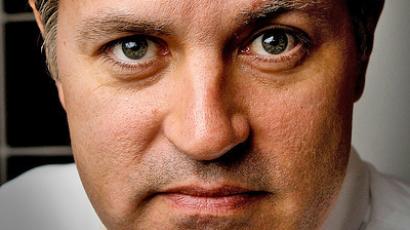Who takes the rap for rendition?
Europe's human rights commissioner has demanded that Lithuania, Poland and Romania investigate the roles their governments allegedly played in the CIA's program of "secret detention and torture" of terrorism suspects.
Thomas Hammarberg called on the three countries to fully investigate the role their governments allegedly played in the CIA rendition program."CIA rendition, detention and interrogation practices gave rise to the most serious categories of human rights violations on European soil," said Hammarberg. "The governments concerned have favored concealment and cover-up." In his exclusive interview with RT, Thomas Hammarberg says the European countries need to decide if intelligence ties are more important than human rights.“There is an enormous pressure from Washington to keep all this secret. In fact, instructions from the CIA, with the support of the White House, are not to give any facts on this. Therefore, it is not easy to investigate,” he said. “But I think some of the European governments that have been involved have to decide whether they think that the co-operation between security agencies is more important than to look into human rights violations and break the atmosphere of impunity.” Europe's human rights chief alleges that officials in Warsaw, Bucharest and Vilnius lied to parliament, made false statements to international organizations, and used judicial channels – including the invocation of state secrecy – to keep the most damaging revelations out of the public domain. There appeared “states within states” which were run by outsiders without any democratic control, and which violate human rights, suggests the commissioner. “During a period of 10 years, serious human rights violations have been committed in an atmosphere of impunity. The truth has to come out about what really happened, who took the decisions, who allowed the establishment of these secret places of detention in the EU countries”, insists Hammarberg.In the 1990s, covert flights shuttled prisoners from the US military base in Guantanamo Bay to dozens of CIA-run prisons overseas.Among the interrogation techniques authorized by the US government were forced nudity, shackling in stress positions, extended sleep deprivation, dietary manipulation and water-boarding.Hammarberg's open statement, released just days before a panel from the Council of Europe is set to look into the matter, claims one secret CIA torture center opened in Poland in late 2002. A year later, the center was relocated to Romania. And Lithuania, according to multiple reports, had a secret CIA prison operating just outside the capital, Vilnius, for more than two years.Although all three governments involved have investigated the abuses, their efforts have been half-hearted at best, Hammarberg said.The world is preparing to mark the anniversary of the tragic 9/11 terror act that inspired the international war on terror. Besides paying respect to the victims of the deadly attacks, one should think of how the world’s and mostly US security agencies handled this security crisis, claims Hammarberg.“There are a lot of lessons to be learnt from how this war on terror was conducted,” says the commissioner. Serious violations of human rights during the unleashed pursue of terrorists led only to spread of the terror in the world, he adds. The militant groups have increased; numerous innocent people were killed as a result – this should be considered and openly discussed to prevent such mistakes in the future.














